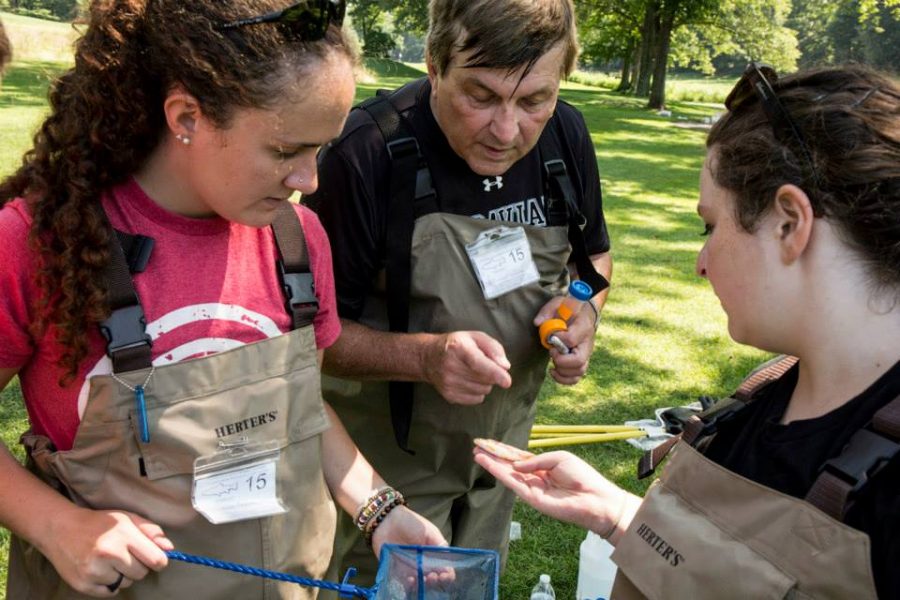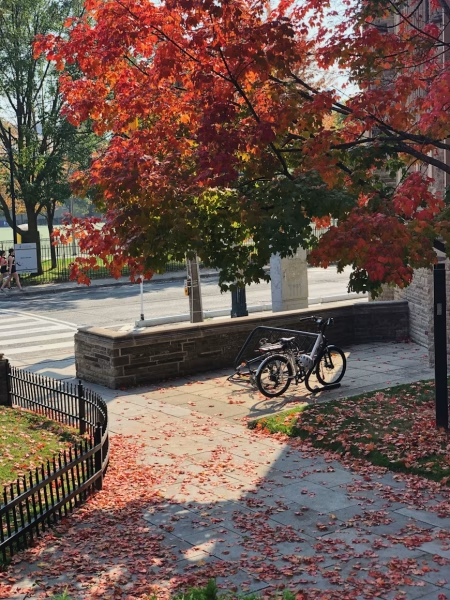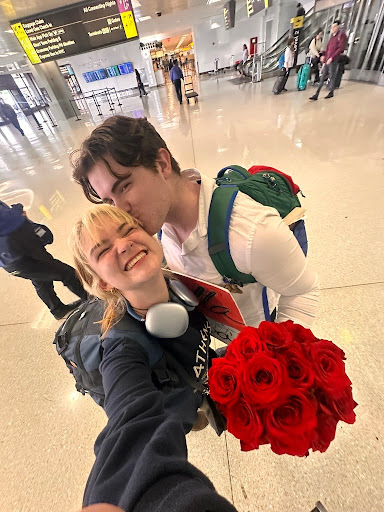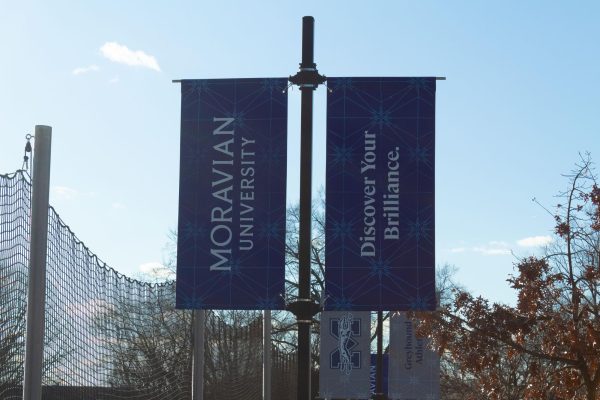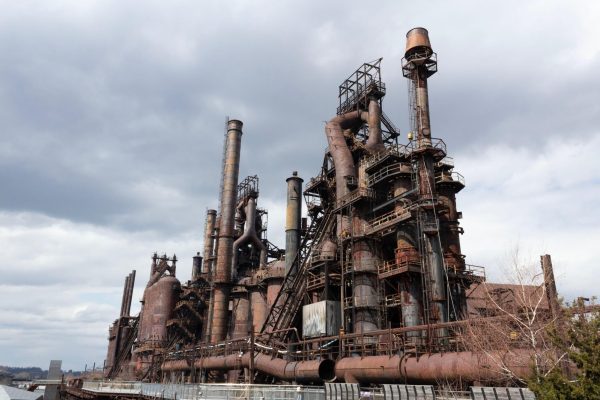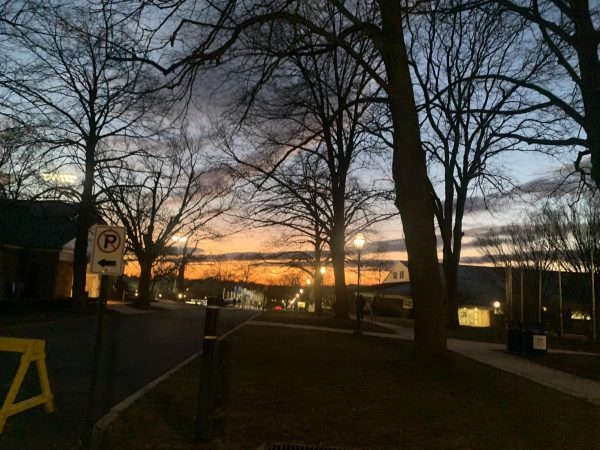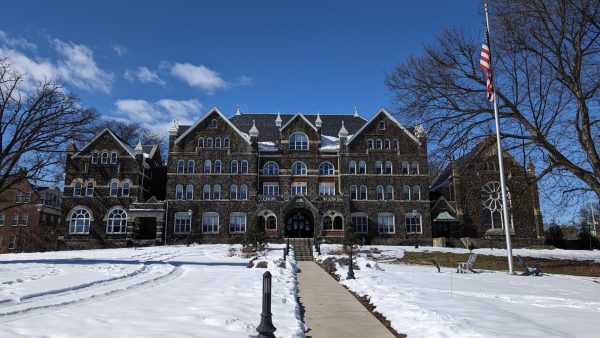Dr. Frank Kuserk: A Life Fulfilled by the Work He Loved
For over 40 years, Dr. Frank Kuserk impacted students, faculty, and staff at Moravian College with his passion for both teaching and learning. His life journey came to an end on Friday, Oct. 20, but his contributions will continue to make a lasting impact on Moravian College, the community, and all those whose lives he touched.
Kuserk became a member of the Moravian College family as a professor of biological sciences, ecology, and environmental sciences in 1977. During his time on the faculty, he made an array of contributions, from bringing the first personal computers to campus for faculty and student use to developing numerous courses for environmental and biology majors, according to Dr. Diane Husic, dean of natural and health sciences.
“Frank always challenged us all to be better than we were—to push beyond the status quo,” said President Bryon Grigsby. “I will never forget the day in the faculty meeting when he asked whether or not the new Health Sciences Building would be LEED-certified [Leadership in Energy and Environmental Design]. He said that stating that the building is certifiable is not good enough; it would be like saying an article or book was publishable. He had me there. Because of Frank, the Health Sciences Building is LEED certified—the first LEED certified building at Moravian. He pushed everyone, students, faculty, and administrators to be more and give more. I will greatly miss Frank, his hat, his smile, and his dry wit.”
In addition to his contributions to the construction of the new Health Sciences Building, Kuserk developed the environmental studies and sciences programs in 2004. With Dr. Husic, he co-wrote a grant proposal to the Margaret A. Cargill Foundation, which resulted in annual funds for the new program for five years. The grant also provided stock options which were sold and allowed for the establishment of an endowment for the purchase of equipment and to support special opportunities, such as guest speakers and professional development travel for faculty and students in the program.
“Dr. Kuserk provided remarkable service to the College,” said John Reynolds, professor and chair of the political science department. “In addition to being willing to accept a wide range of administrative duties when called upon to do so, Dr. Kuserk became an important source of institutional memory over the past several years. In his capacity as a senior faculty member, he often provided significant wisdom to discussion of college policy and did so in a manner consistent with collegial values.”
In addition to his responsibilities as the director of the environmental studies program, Kuserk dedicated his time to working inside and outside of the classroom with students. As part of his research, Kuserk and his students assessed the impact of stream restoration on fish and macroinvertebrate communities, while also evaluating the effects of heavy metal smelting on forests, wildlife, and soil microbial communities at the Palmerton Zinc Superfund site, according to the Moravian College webpage.
Kuserk also mentored students for SOAR and Honors projects, which often provided key information about environmental quality in the region and was used by state and local agencies and nonprofit organizations to make management and conservation decisions, according to Husic.
“From the very first lab with Dr. Kuserk when we hiked around Jacobsburg State Park, I knew I was hooked,” said Katie Boyle, ’19. “Friday labs were no longer dreadful but instead alluring, whether we were identifying trees, collecting data on turtle population dynamics, or collecting macro-invertebrates from the creek. My class was always excited to see what Dr. Kuserk had in store for us that day.”
With Kuserk’s help his students published articles in Microbial Ecology, Canadian Journal of Fisheries and Aquatic Sciences, Ecology, and other academic journals, while also receiving grants for scientific research. Many of his students also presented their work at scientific meetings, such as the National Conference on Undergraduate Research, the Mid-Atlantic Chapter of the Ecological Society of America, and the Pennsylvania Academy of Science, according to the Moravian College webpage.
“I felt he was an incredible guide and inspired everyone around him with his passion and dedication towards [his] students,” said Austin Grace, ’19. “His philosophy was you never had to work a day in your life if you were doing something you loved. He is a professor that truly cared for all of us.”
Along with his contributions to the College and students, Kuserk presented his work at numerous state, national and international conferences. He aided the community as an active member of the Wildlands Conservancy, the Monocacy Creek Watershed Association, and the Ecological Society of America.
Kuserk also worked closely with Husic, participating in a national program sponsored by the Keck Foundation and Project Kaleidoscope on Facilitating Interdisciplinary STEM Learning. They worked together in the field at the Palmerton Superfund Site and were co-authors on the second Ecological Assessment for the restoration work at the Lehigh Gap Nature Center. In addition, they were both active in the Lehigh Valley Watershed Association, the PA Game Commission, and Penn State on an experimental Chestnut tree regeneration project.
“I have so many fond memories of Frank – all the stories he shared, the many conversations we had in my office both in Collier and more recently in Hamilton Hall, our travel time to conferences listening to classic rock and bragging about our research students,” said Husic. “But it was really fun to be in the field together watching Frank’s child-like enthusiasm for rivers and trees, macro-invertebrates, and turtles. He absolutely loved mentoring students in research and in life. We will all miss his stories and his passion for science, history, and life.”


